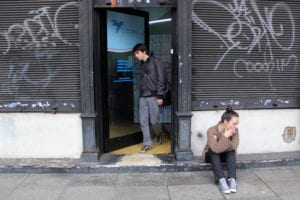Katherine Hensley
Fellowship Location: Buenos Aires, Argentina and León, Nicaragua
The Working World
Argentina
There is often the feeling in Argentina that the obstacles to success are insurmountable, especially in business.
One such obstacle is the persistently high rate of inflation. The government and independent economists disagree about the actual rate, but is believed to be anywhere from 9 to 25 percent. This high rate of inflation and the subsequent decline in the value of the peso (ARS) make transactions in local currency difficult. Oftentimes business transactions are conducted using US$ in order to reduce price fluctuation.
Here businesses are also hurt by an unfavorably high exchange rate. While the official exchange rate is currently 4.55 ARS for 1 US$, the lack of legal access to US$ means that Argentines often pay as much as 6 ARS.
In hopes of promoting the use of ARS and stabilizing the value of the peso, the Kirchner administration has begun regulating currency transactions and prohibiting the purchase of US$. For Argentines this is yet another obstacle to overcome.

The Working World
I am a rising senior in the undergraduate business program at NYU and interested in how to support upward mobility and development in populations that have been historically disadvantaged both socially and economically.
My placement organization this summer, The Working World, is a microfinance institution (MFI) that strives to give workers hope and opportunity in difficult economies. Specifically, TWW operates in Argentina, Nicaragua and New York City.
TWW focuses its services on democratically run worker cooperatives (i.e. organizations owned and managed by worker-owners) and on organizations that hope to convert to the worker cooperative structure. The philosophy of TWW is that democratically run worker cooperatives are able to create broader wealth well-being and opportunity for the greatest number of people, unlike the very hierarchical manager / employee or general partner / limited partner structures.
Unfortunately worker cooperatives often have difficulty accessing financing as a result of poor credit or lack of collateral. The Working World strives to correct this market problem by providing access to “just-in-time” low-interest credit. The aim is to deliver exactly the right amount of capital to growing businesses right when they need it. Furthermore, the organization works closely with the borrowing cooperatives to tie loan returns to project revenue creation, ensuring wealth is only created and never extracted.
My project this summer will be to study and understand the model so that I may craft a guide on how to identify ideal worker cooperatives, how to form businesses in different economies, how to create a wealth-creating loan, and more. Ideally, this guide could be used for students, loan officers, and those who are interested in forming their own MFI.
